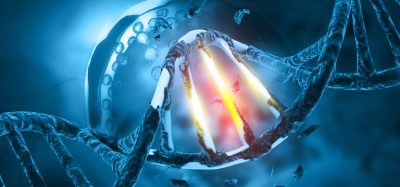Potential new target for colon cancer
Posted: 13 September 2017 | Dr Zara Kassam (Drug Target Review) | No comments yet
Researchers have demonstrated that a novel protein can cause normal cells in the lining of the colon to become malignant, grow and spread…


Researchers have demonstrated that a novel protein can cause normal cells in the lining of the colon to become malignant, grow and spread, as well as take on the characteristics of stem cells.
SATB2 is a novel transcription factor – a protein “switch” that controls which genes are turned on or off inside a cancer cell.
To study SATB2’s role in colorectal cancer, the researchers at LSU Health New Orleans School of Medicine and Stanley S. Scott Cancer Center forced the SATB2 gene to make extra copies of the SATB2 protein in normal cells.
The cells changed, displaying enhanced cell growth, motility, migration and invasion. Further analysis revealed markers and a master cell ability – the cells could produce any kind of cell needed just like other stem cells. They became cancer stem cells. The researchers also found these cells had a much greater ability to survive and proliferate.
Biomarkers are redefining how precision therapies are discovered, validated and delivered.
This exclusive expert-led report reveals how leading teams are using biomarker science to drive faster insights, cleaner data and more targeted treatments – from discovery to diagnostics.
Inside the report:
- How leading organisations are reshaping strategy with biomarker-led approaches
- Better tools for real-time decision-making – turning complex data into faster insights
- Global standardisation and assay sensitivity – what it takes to scale across networks
Discover how biomarker science is addressing the biggest hurdles in drug discovery, translational research and precision medicine – access your free copy today
Silencing SATB2 in the colorectal cancer cells not only suppressed cell growth, motility and colony formation, but the characteristics of cancer stem cells were absent. This means that if agents are identified that can block SATB2, they may be used, along with the standard of care, to prevent cancer relapses and metastasis.
“Since the SATB2 protein is highly expressed in the colorectal cell lines and tissues, it can be an attractive target for therapy, diagnosis and prognosis,” notes Dr Rakesh Srivastava, Professor of Genetics at LSU Health New Orleans School of Medicine and Stanley S. Scott Cancer Center.
“Importantly, SATB2 is present not only in colon cancer but in other cancers as well,” adds Dr Sharmila Shankar, Associate Professor of Genetics at LSU Health New Orleans School of Medicine and Stanley S. Scott Cancer Center.
Cancer stem cells are a small subset of immortal cells in tumours that are not only capable of renewing themselves, but also giving rise to other cells needed by the tumours to survive and grow.
These cells are more resistant than typical cancer cells to standard chemotherapeutic agents and can persist in the body even after treatment. The cancer stem cells are thought to be a major cause of treatment failure, disease relapse and metastasis. Certain signals can turn a regular cancer cell into a cancer stem cell, making it resistant to treatment. SATB2 appears to be a master regulator of that process, controlling several of the mechanisms involved.
When the researchers compared normal human colorectal epithelial cells and tissue with human colorectal cancer cell lines and primary colorectal tissues, they found that while SATB2 is not active in normal colorectal tissue, it is highly active in colorectal cancer cells.
The research has been published in Nature Research’s Scientific Reports
Related topics
Oncology, Target Molecule, Therapeutics
Related conditions
Colon cancer
Related organisations
LSU Health New Orleans School of Medicine, Stanley S. Scott Cancer Center
Related people
Dr Rakesh Srivastava, Dr Sharmila Shankar







